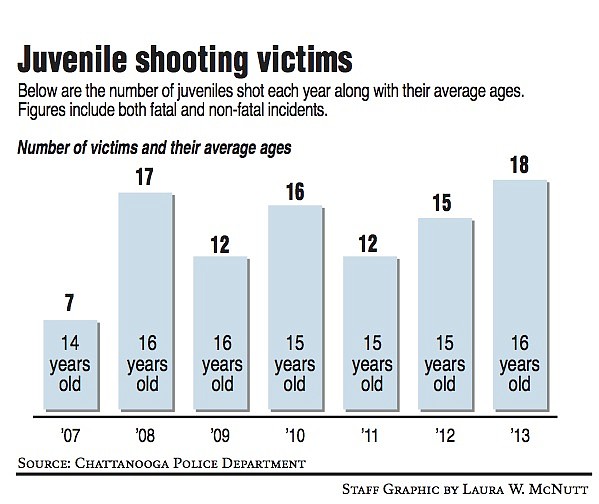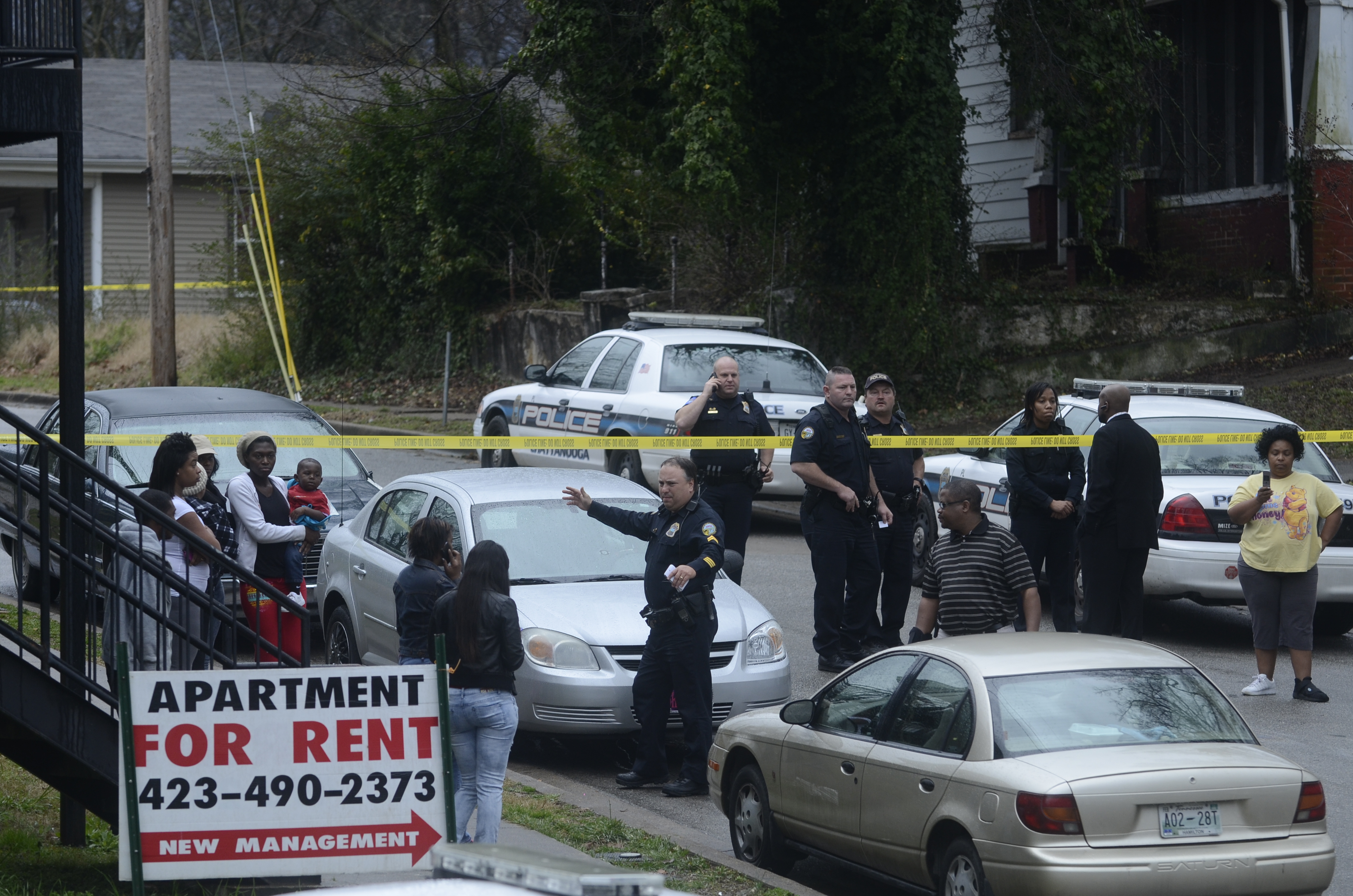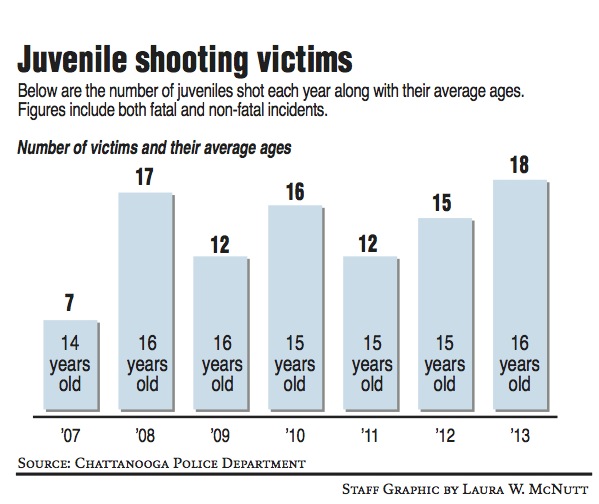Bullets have already struck more Chattanooga juveniles this year than in recent years.
So far this year, 18 youths under age 17 have been shot. Two died and three were hit by accident, according to police information.
Since 2007, all of the juvenile shooting victims have been black. Almost all are males. Their average age this year is 16, but one was just 12.
"I don't think a great deal of it is gang-related. I just think it's culturally related, where more people are willing to pick up a gun to solve problems," said Chattanooga police Chief Bobby Dodd.
"What really surprises me is not only the amount of violence but the age of the these kids getting involved," he said.
In March a 16-year-old, Lamunta Williams, was shot and killed in an abandoned house a couple of blocks from the Howard School during the school day. Last month a 15-year-old, Ollie Peters, was shot to death in a front yard on an Avondale street. Police found his bloodied body with a gunshot wound to the head.
Chattanooga Mayor Andy Berke has vowed since he took office in April to stop the shootings.
"The day of my election, a 16-year-old boy was murdered in the middle of the day when he should have been at school. Over the last few years, we have seen minors who are victims of crimes far too often in our city," Berke said.
Berke plans to introduce two programs to target the city's most violent criminals and drug dealers, but they won't begin until 2014.
"I would say that we are not waiting. We are hard at work to assemble the investigations, intelligence, and service coordination which takes time and diligence," he said in an email. "I'm impatient and wish full implementation could occur. But we know from talking with national experts that to see the gains we've seen in other cities, you have to do it right and that takes time."
The High Point program Berke plans to implement works by building large-scale cases against violent drug dealers. They are shown the evidence against them and offered a chance to leave a life of crime. They're offered resources to make changes, whether it be job training, a degree, drug rehab or counseling.
"However, if these individuals commit additional crimes, they are sent away with the toughest sentence possible as an example to the community," Berke said. "You then reach out to the broader community to spread the message that violence is unacceptable. We have seen these initiatives, when done right, make a dramatic difference in communities across the country."
In the meantime, the numbers continue to rise this year. Dodd believes it's cyclical, based on fluctuation seen in recent years.
Investigators continue to gather at sites marked by blood, yellow crime scene tape and often the raw wails of women when they learn it's their child who has fallen.
Chattanooga police take an estimated 600 to 700 guns off the streets each year, but guns are always readily available.
"I would certainly encourage family members, church members, community members, anybody that has access to a kid who they see as teetering on the edge of doing the right thing ... certainly help and do what they can," Dodd said. "They can see what we're having to deal with daily. If you look at the numbers, they consume our efforts."
Contact staff writer Beth Burger at bburger@timesfreepress.com or 423-757-6406. Follow her on Twitter twitter.com/abburger.


